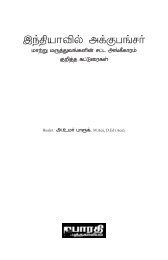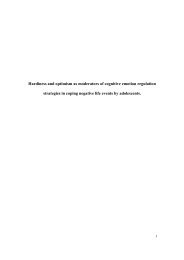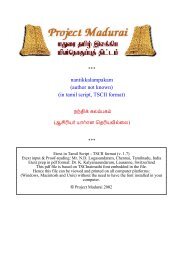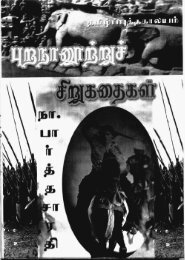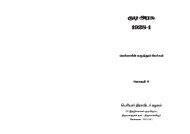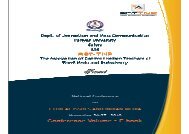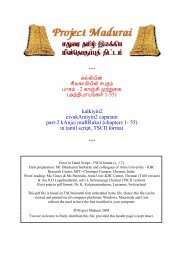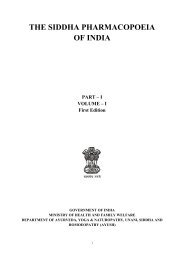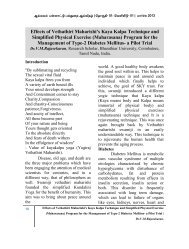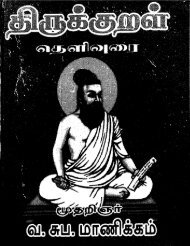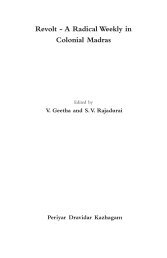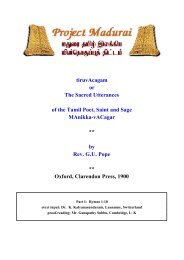THE FUNDAMENTAL RULES OF THE TAMIL NADU GOVERNMENT
THE FUNDAMENTAL RULES OF THE TAMIL NADU GOVERNMENT
THE FUNDAMENTAL RULES OF THE TAMIL NADU GOVERNMENT
- No tags were found...
You also want an ePaper? Increase the reach of your titles
YUMPU automatically turns print PDFs into web optimized ePapers that Google loves.
(5) The Government servants, who are sponsored by the Government for training abroad underthe various training schemes of the United Nations, the Colombo Plan, the Point Four Programme andthe like and the schemes operated through non-official channels (Rockfeller Foundation, FordFoundation and the like) should be brought under the orders issued in G.O. Ms. No. 798, Finance,dated 1st July 1962 and not under the Study Leave Rules.(6) A certificate to the effect that the study allowance and/or cost of fees for study is/are claimed inaccordance with rules 12 and 13 and/or rule 16 of the Study Leave Rules shall be recorded in the billsby the drawing officers.(7) Restrictions under rules 5 and 9 of these rules limiting the grant of study leave to a maximumperiod of two years for a Government servant’s entire service shall not apply in the case of medicalofficers of the Tamil Nadu Medical Service to enable them to avail themselves of study leave inexcess of two years, wherever necessary to undergo postgraduate courses.These orders take effect from 1st July 1962.(G.O. Ms. No.1942, Health, dated 5th June 1963.)85. (a) Extraordinary leave may be granted in special circumstances (1) when no other leaveis by rule admissible, or (2) when, other leave being admissible, the Government servant concernedapplies in writing for the grant of extraordinary leave. Such leave is not debited againstthe leave account. No leave salary is admissible during such leave.(b) The authority which has the power to sanction leave may grant extraordinary leave asin clause (a) in combination with, or in continuation of any leave that is admissible, and maycommute retrospectively periods of absence without leave into extraordinary leave.RULINGS.(1) “Leave not due” applied for by a Government servant with or without medical certificate is“leave admissible under rule”. Therefore, where “leave not due” can be granted, the grant ofextraordinary leave under this rule will be irregular unless the latter kind of leave is specificallyapplied for in writing.(Comptroller and Auditor-General’s Letter No.169-A/164/33., dated 4th November 1933.)Limit of Extraordinary Leave.(2) Extraordinary leave under rule 85 may be granted either by itself or in combination with, or incontinuation of other leave subject only to the provision in Rule 18. The maximum laid down in Rule81(d) does not apply in the case of extraordinary leave.(Comptroller and Auditor-General’s Letter No. 1115-A/433/23, dated 7th November 1925.)Casual Leave.(3) The rules regarding the grant of casual leave to Government servants are printed as AnnexureVII.(4) The power of commutation under the last two lines of caluse (b) of this rule is an absolute one;the words “as in caluse (a)” used in line (2) cannot be taken to qualify the latter part of the rule. Inother words, the condition mentioned in Rule 85(a), viz., “when no other leave is by rule admissible”does not apply to the commutation retrospectively of absence without leave into leave withoutallowances either under Article 421, Civil Service Regulations or Rule 85(b).(G.O. Ms. No. 255, Finance, dated 12th April 1935.)86 (a) (i) Leave at the credit of a Government servant in his leave account, other than earnedleave and leave on private affairs shall lapse on the date of retirement or on the date oftermination of the extension of service, as the case may be. The competent authority (leavesanctioning authority) shall suo motu draw and disburse the cash benefits of encashment ofearned leave and leave on private affairs at the credit of the Government servants in GroupsB,C and D without formal sanction orders on the date of retirement or on the date oftermination of the extension of service, as the case may be, or on the next working day,following the date of retirement or the date of termination of extension of service if the date ofretirement or the date of termination of extension of service happens to be a holiday. In127



